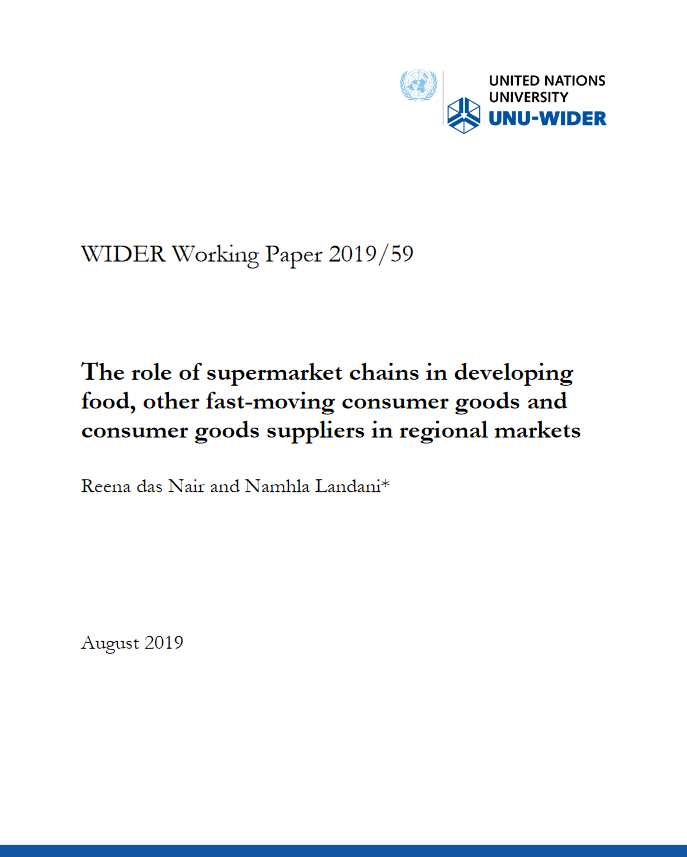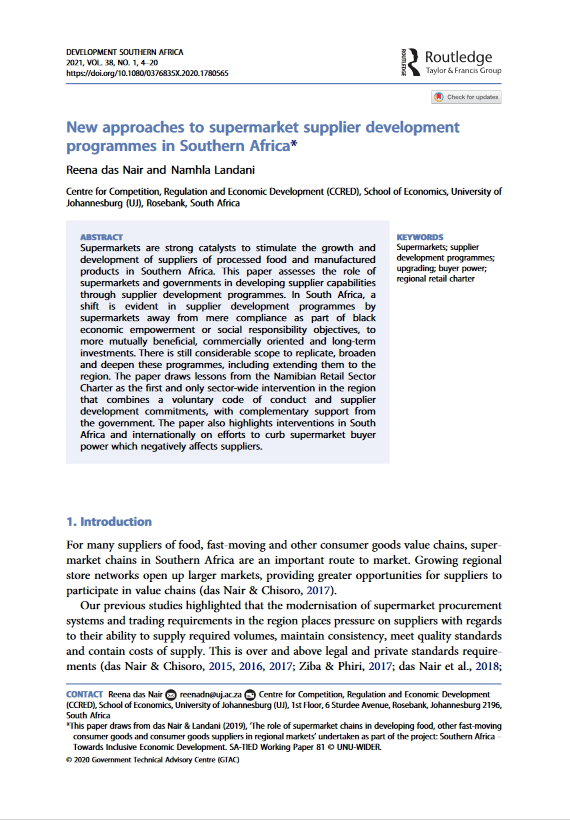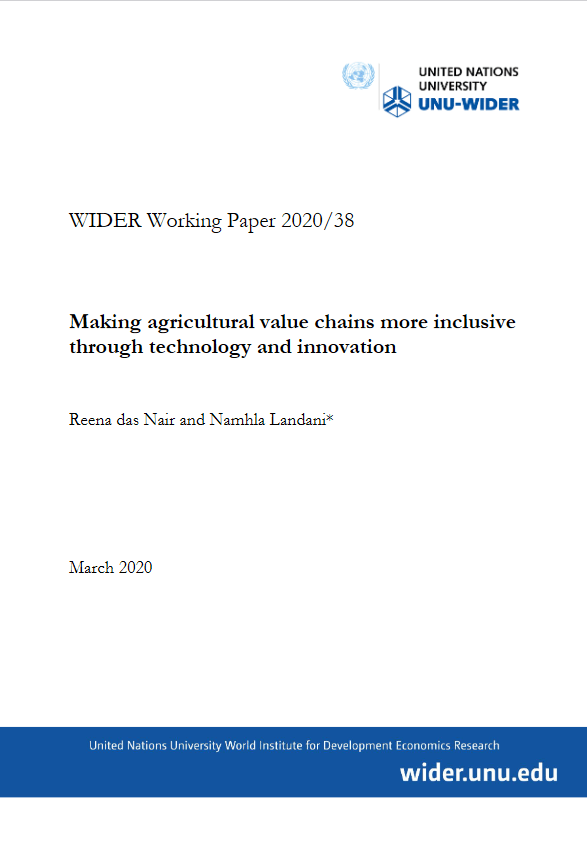︎

Reena das Nair
University of Johannesburg
Dr Reena das Nair is a Senior Researcher at the Centre for Competition, Regulation and Economic Development (CCRED) and Programme Coordinator and Senior Lecturer in the Master of Commerce in Competition and Economic Regulation programme at the University of Johannesburg, South Africa. Reena has worked for specialist economic consultancy Acacia Economics offering expertise in competition and regulatory economics. Prior to joining CCRED, Reena was Programme Manager: Industrial Policy at Trade and Industrial Policy Strategies (TIPS), a not-for-profit research organisation undertaking research for policy makers. Before TIPS, she worked as Principal Economist at the Competition Commission of South Africa. She has extensive experience in undertaking investigations and economic analysis in mergers, abuse of dominance and cartel cases. Reena holds a PhD (Economics) from the University of Johannesburg and a MCom (Economics) from the University of the Witwatersrand. She has published widely, including in the International Review of Applied Economics, Development Southern Africa and the Journal of Energy in Southern Africa, and has authored and co-authored chapters in Edward Elgar Publishing, HSRC Press, Wits University Press and Jacana Media book publications. Reena also provides training and capacity building for regulators and competition law and economics professionals in Southern and East Africa. Her areas of research interest include competition dynamics in the grocery retail sector, food value chains and regional value chains, with a focus on barriers to entry for small and medium-sized and women-owned enterprises, and alternative routes to market in food systems.
MORE ABOUT REENA DAS NAIR >Jan 1, 2020
S. Chisoro-Dube, R. das Nair
Confronting entry barriers in South Africa’s grocery retail sector

Jan 1, 2020
Reena das Nair, Namhla Landani
The role of supermarket chains in developing food, other fast-moving consumer goods and consumer goods suppliers in regional markets.
Supermarkets are strong catalysts to stimulate the growth and development of producers and suppliers of processed food and manufactured products in Southern Africa. This paper assesses the role of supermarkets and governments in developing supplier capabilities through supplier development programme...

Jan 1, 2020
Reena das Nair, Namhla Landani
New approaches to supermarket supplier development programmes in Southern Africa
Supermarkets are strong catalysts to stimulate the growth and development of suppliers of processed food and manufactured products in Southern Africa. This paper assesses the role of supermarkets and governments in developing supplier capabilities through supplier development programmes. In South Af...

Jan 1, 2020
Reena das Nair, Namhla Landani
Making agricultural value chains more inclusive through technology and innovation
Some entry barriers in agricultural and agro-processing value chains, particularly for smallholder farmers and small/medium-sized processors, can be overcome with innovation and technology adoption. Technologies and innovation in these sectors have been both radical and incremental, ranging widely t...

Jan 1, 2020
Reena das Nair
The “supermarket revolution” in the South
This chapter evaluates the extent of 'supermarketisation' and internationalisation of supermarket chains and the implications on consumers, suppliers and the competitive landscape. While the degree of both supermarketisation and internationalisation has not been to the extent that was pred...

